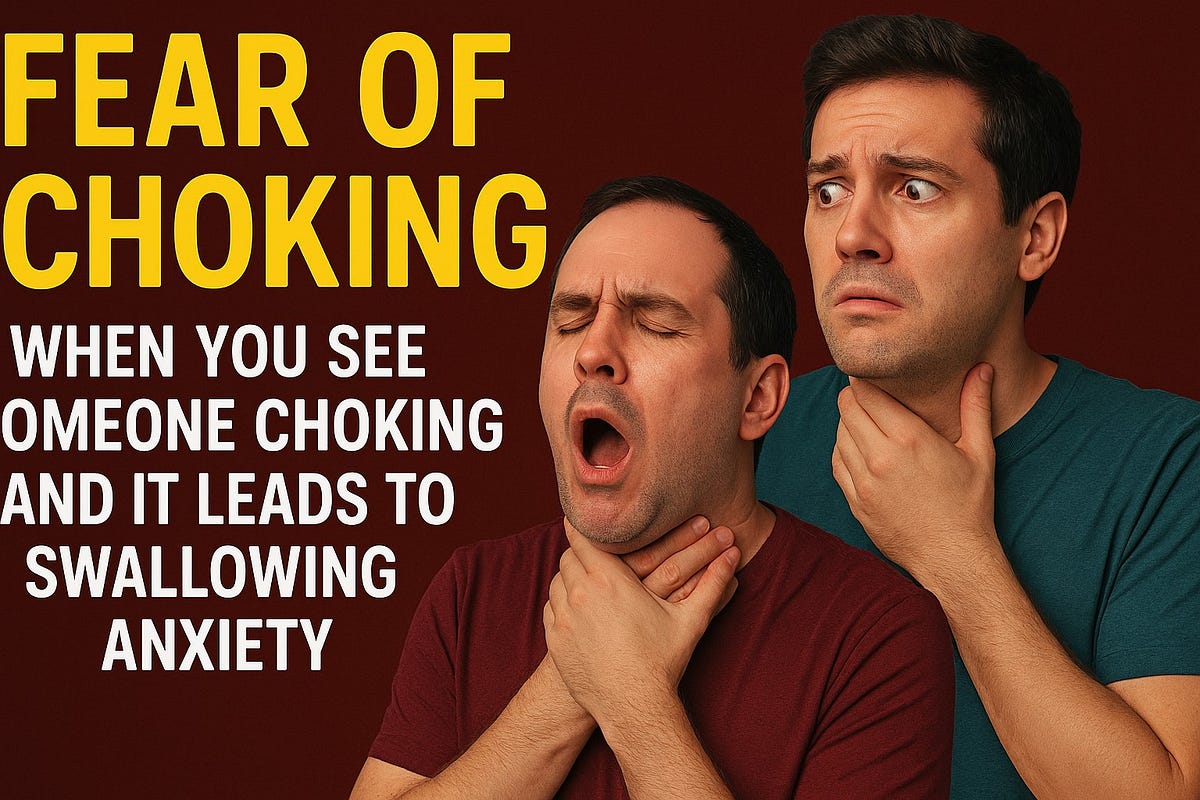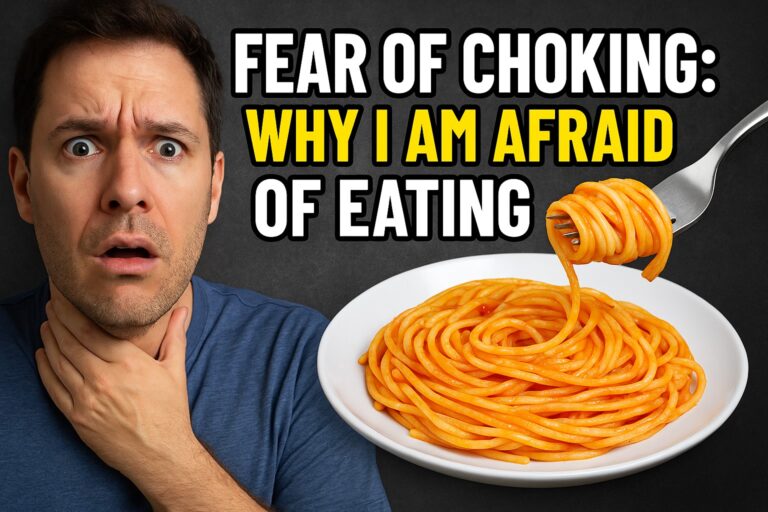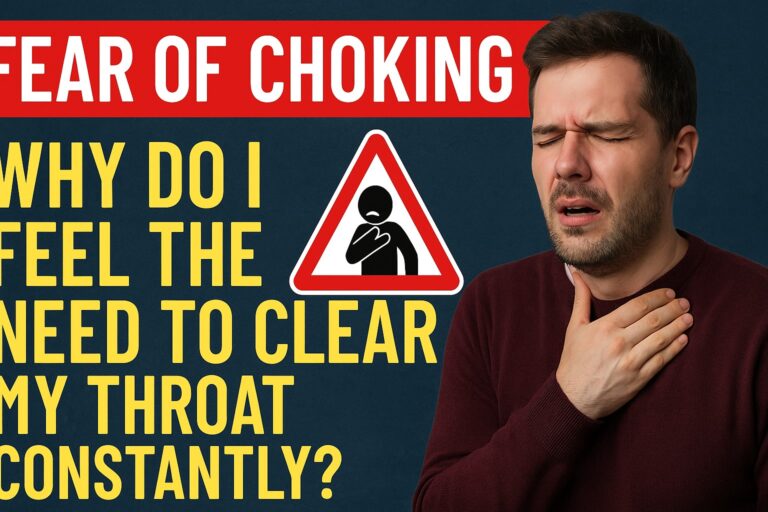Book Appointment Now
Can Watching Someone Choke Lead to a Fear of Choking?

Today I want to explain something I’ve been asked before: Can watching someone choke cause you to develop a fear of choking?
The answer is yes. Let’s dive into how that works.
Not All Fear Comes from Personal Experience
You may have heard me say before that fear of choking can often come from personal experience — like having a choking incident yourself. But here’s the key insight: fear doesn’t always need direct involvement.
You can develop a fear simply by witnessing someone else go through a frightening event. I’ve come across someone who said they saw their aunt choke when they were young, and ever since then, they’ve had a fear of choking.
This happens because fear can also be learned through observation.
The Mind Learns by Association
When you see someone choke — especially someone close to you — your mind can associate the act of swallowing or eating with danger. This kind of observational learning can cause a subconscious fear that develops into caution, anxiety, and even avoidance behaviors.
You might find yourself:
Constantly watching others while they eat
Becoming hyperaware of how your throat feels
Overanalyzing every bite and swallow
Worrying excessively when someone near you is eating
Even though you didn’t choke yourself, your mind has seen it and logged that moment as a potential threat.
When Fear Becomes a Pattern
Your brain starts scanning for signs of danger during meals — just to make sure what happened to that person doesn’t happen to you or others. That hypervigilance can even evolve into a fear of eating or swallowing certain foods.
Why? Because your mind remembers what food or drink that person had during the incident and now links that food with danger.
But Why Doesn’t Everyone Develop This Fear?
That’s an excellent question. Not every fear turns into an unresolved issue or phobia.
Some people may witness a traumatic event and walk away without any long-term psychological impact. It all depends on:
The mental and emotional state you were in during or after the event
Whether you had support afterward
How your mind processed the situation
Let’s say someone grew up in a tough household, but they had a loving cousin or a supportive teacher. That extra emotional support can help the brain process difficult events more rationally, preventing long-term emotional scarring.
The Role of the Unconscious Mind
Fear becomes unresolved when it bypasses your logical reasoning and sinks into the unconscious. That’s the part of your mind that doesn’t question — it just reacts.
So if your mind didn’t get the chance to process what you saw clearly in the moment, it may quietly plant that fear deep inside.
That’s why some people walk away from a choking incident with no fear, while others begin avoiding certain foods or develop anxiety around eating altogether.
Final Thoughts
If you’ve developed a fear of choking from witnessing someone else go through it, know that it’s valid and understandable. But also know that you’re not broken — your mind was just trying to protect you.
Understanding how the fear formed is the first step to letting it go.
Until next time, take care.






